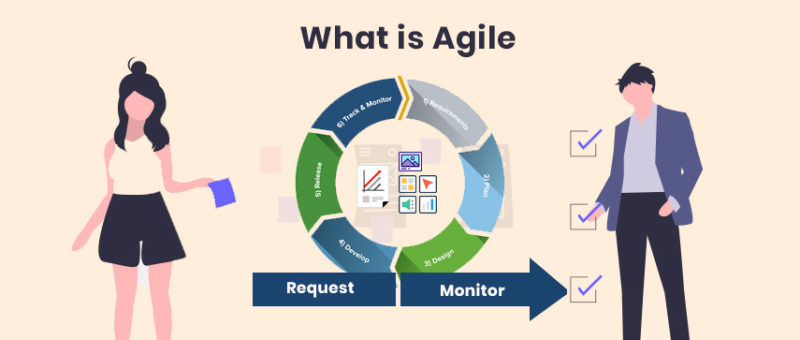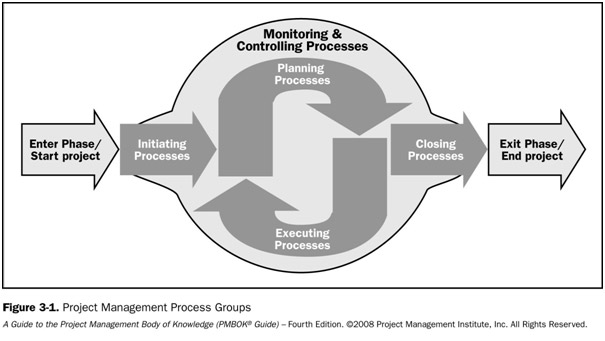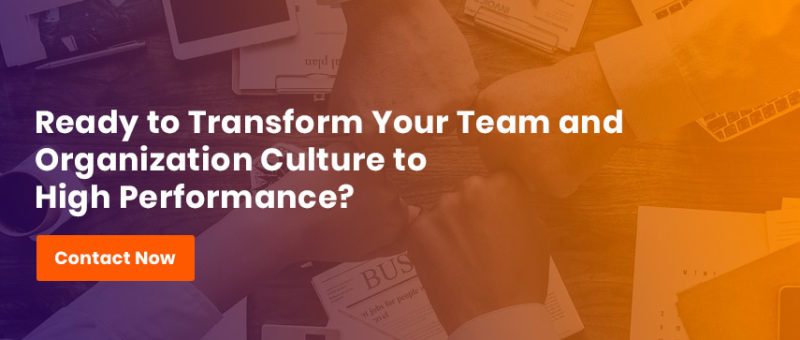
- Naveen Kumar Singh
- Nov 23rd 2019
People often compare waterfall vs agile and argue one is better than other. Discussions also happen around simple requirement vs complex requirement and if simple then waterfall and if complex then use one of the agile approaches. Is it that simple? Is comparing based on requirement type correct?
Another argument is about predictive vs empirical and if predictive then waterfall else agile approach. People also do the comparison of project vs product. If you have project (often referred as fixed time and fixed cost) then go for waterfall and if you have a product that is being built based on market reaction then take one of agile approach. I don’t see people consider full context and that stumps me. Let’s talk about complex predictive project such as setting up disaster recovery system, automation of plant, rolling out SAP HR in 28 multiple countries simultaneously or automating delivery pipeline.
Here we have predictive work like setting up production like environment for DR that should work if needed as expected, automation of plant and automated delivery pipeline to improve quality and productivity, adopting lean HR practices across company through SAP HR. What approach would you suggest in these scenarios? Should it be waterfall or agile? Can we have incremental release for all these if we choose agile approach? If yes, will these small releases be readily available within a month? If no, then should we take a waterfall approach? Or should be try WaterScrumFall, ScrumBan or WaterKanban? Or possibly SAFe (Scaled Agile Framework) which talks about program implementation through longer planning and execution known as Agile Release Train?
What is agile?
Agile when I say refers to Manifesto for Agile Software Development that was defined by 17 developers in February of 2001 and consists 4 values and 12 principles. Many claims Agile way of working was in existence before 2001 and I believe that’s true because Scrum was introduced through HBR paper “New New Product Development Game” in 1986.
I admit my ignorance to anything beyond that so will I will stop at that. Now, however we see many versions of agile like agile way of working, enterprise agile and business agility and so on.
What is Waterfall?
Waterfall is about executing work in phases or sequence like we do for a data center - plan, design, build, commission, optimize, assess etc. and involves capacity planning, cost analysis, civil work, procurement, installation, commissioning and certification etc. These can’t run in parallel like what we do in software development where everything gets executed in parallel or overlapping. The first formal description of the waterfall model is often cited as a 1970 article by Winston W. Royce, although Royce did not use the term waterfall in that article. Royce presented this model as an example of a flawed, non-working model; which is how the term is generally used in writing about software development—to describe a critical view of a commonly used software development practice. The earliest use of the term "waterfall" may have been in a 1976 paper by Bell and Thayer. Source - WikipediaIs PMI - Project Management approach similar to waterfall?
Can be perceived that way if you read it incorrectly, but does it promote one time planning and execution. In the image below it clearly promotes continuous planning and execution and talks about regular monitoring &controlling.
It takes about same PDCA (Plan-Do-Check-Act) cycle that we talk about on name of agile development and states that initiation & closure is one time that too not applicable at the project level but at all phases.
So what is PMI promoting in the name of PMBOK?
Project management body of knowledge (PMBOK) talks about Knowledge Areas, Processes and Tools & Techniques. These knowledges are really useful even in agile context. It is about understanding in regards to requirement management, scope management, quality management, risk management and stakeholder management. You will find plenty of tools & techniques to manage work. PMBOK talks about FIVE phases of project namely- Initiating – Initiating phase talks about goal, purpose and objectives
- Planning – Planning everything that is needed to execute project
- Executing – This phase is about doing actual work
- Monitoring & Controlling – This is about the periodic review of work and taking corrective action
- Closing – This is about lessons learned during the various phases.
What’s wrong with PMBOK?
If you talk in terms of the project then there is nothing wrong about PMBOK and fits perfectly fine for the predictive complex project. It defines a project as a temporary endeavor undertaken to create a unique product, service or result. Here the expectation is requirements are clear (maybe complex but clear) and required complex technologies, processes, and tools to execute are identified and available. Usually, such projects take anywhere from 5 months to 5 years. Most project is about completing work and handing it over to operations team to operate, maintain and sustain.Typical software product has some basic challenges that don’t fit within this cycle like frequent changing requirement for it is based on feedback cycle thus requiring more frequent cycles (of what?)and doing all steps as stated by PMBOK may not be possible or required. Also, product development cycle is continuous rather than temporary and work keeps emerging as more is learned about the customer expectations, changing business need and even the technology upgradation. Product development starts with an idea and will continue till the product is retired and so planning and visualization of whole life-cycle upfront is not possible. Even Scrum (most popular Agile approach) does mention project and clearly states that every cycle (Sprint) can be considered as a project.
What is there in Manifesto for Agile Software Development?
The manifesto’s primary focus is software development and consists of 4 values and 12 principles. I am not quoting those principles here as they are very specific to software development but the stated values are relevant to many other areas and can be easily interpreted by anyone who understands project or product development.
- Individuals and interactions over processes and tools - It doesn’t mean we don’t need processes and tools but it means the focus should be more on people and interactions between them. So, some of the PMBOK processes may fit in here.
- Working software over comprehensive documentation - Documentations are fine as long as it adds value. Just producing documents and not product shouldn’t be the focus.
- Customer collaboration over contract negotiation –When executing complex work, negotiating requirements, resources and deliverables become complex and everyone tries to tilt the contracts in their favor. The agile approach however talks about building trust by the two parties collaborating rather than signing a fixed contract. This by no means indicates that we don’t need contract and accountabilities.
- Responding to change over following a plan - We do need plan and planning for sure, but Agile approach suggests to plan frequently rather than once upfront so as to address the changing needs.
So what approach works well?
As I mentioned earlier it depends on the nature of work but let’s also explore if the two approaches really contradict each other or do they complement each other?
My perspective on these two approaches are
If you are talking about Project Management then PMI approach suits better but then adopting agile values does make sense. For instance, can the project team be more collaborative in approach to deal with complex issues by simple conversation rather than going through stated processes? If yes then why not adopt these values there?
Can we go further? Yes, we can and learn some good practices from Scrum framework even we are not having releasable increment at the end of Scrum and can’t produce. But we can still practices daily scrum, monthly review and respective as well scrum values. If you are talking about complex product development then agile approach such as Scrum, XP, LeSS, Lean and other similar methods make a lot more sense. But even in those cases, knowledge areas, techniques and tools from PMBOK such as requirement management, quality management, risk management and stakeholder management does add value for these are knowledge not process and this knowledge are still required and useful.
What is Agile Way of Working?
This is more to do with organizational structure, processes and people within organization to adopt lean approach in order to respond to the fast-paced changes of the VUCA world. Agile Way of Working is much more than agile vs waterfall and need more time to understand and I promise to write about it some other day.Find Our Upcoming Trainings









